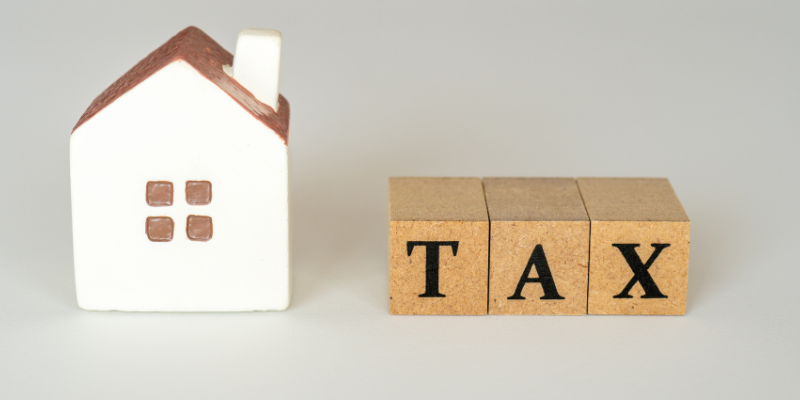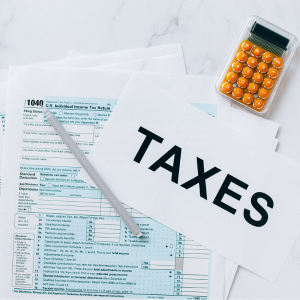
Understanding Capital Gains Tax When Selling Property in North Carolina
Understanding capital gains tax is crucial for homeowners when selling property in North Carolina. Capital gains tax applies to the profit made from selling a house, calculated as the difference between the property’s sale price and its original purchase price plus any improvements.
In North Carolina, this tax can significantly impact your net proceeds, primarily if you have owned the home for a short period. The federal capital gains tax rates vary based on your income level and how long you’ve owned the property; typically, they are lower if you’ve held onto your home for more than a year, qualifying it as a long-term investment.
Moreover, North Carolina imposes its state income tax on capital gains, further affecting your overall tax liability when selling a home. Homeowners may qualify for certain exemptions or exclusions, such as the $250,000 exclusion ($500,000 for married couples) if they meet specific criteria like living in the residence for at least two of the five years before the sale.
Understanding these nuances can help sellers effectively strategize to minimize their tax burden and maximize their returns when engaging in real estate transactions in North Carolina.
What Taxes Do You Pay When You Sell a House in NC?
When selling a house in North Carolina, it’s essential to know the various taxes that may apply. Here are the key taxes to consider:
- Real Estate Transfer Tax (Excise Tax or Deed Stamp Tax)
– This is a state-imposed tax based on the property’s sale price. In North Carolina, the rate is generally $1 for every $500 of the property’s value. - Capital Gains Tax
– If you’ve owned and lived in the home for less than two years, you may owe capital gains tax on the profit from the sale. However, suppose the property is your primary residence and you meet certain ownership and use requirements. In that case, you may qualify for a capital gains exclusion (up to $250,000 for single filers or $500,000 for married couples filing jointly). - Prorated Property Taxes
– Local property taxes are usually prorated up to the closing date. This means the seller pays a portion of the annual property taxes based on the time they owned the home during the tax year. These are typically settled between the buyer and seller at closing.
Understanding these taxes can help you estimate your net proceeds more accurately and avoid surprises at closing. Contact us for guidance, and we will connect you to a tax professional or real estate attorney for personalized advice based on your situation.
Local Transfer Taxes and Fees Associated with Home Sales in North Carolina

When selling a house in North Carolina, it’s crucial to understand the local transfer taxes and fees that may apply. In North Carolina, the most common tax associated with home sales is the excise tax, often called the “deed stamp tax.” This tax is typically calculated at $1 for every $500 of the home’s sale price, making it an essential consideration for sellers.
Additionally, some counties or municipalities might impose their transfer taxes or fees on top of the state tax, although these are less common in North Carolina than in other states. Sellers should also be aware of potential additional costs, such as recording fees charged by county offices for documenting property transfers.
These fees vary by county and are usually based on the number of recorded pages. Understanding these local transfer taxes and associated fees is essential for anyone planning to sell their home in North Carolina, as they can impact the overall proceeds from the sale and affect financial planning during this significant transaction.
It is advisable to consult with a real estate professional or attorney familiar with North Carolina’s specific tax regulations to ensure that all obligations are met accurately. Cardinal Home Buyers can provide more precise guidance tailored to your situation.
Navigating Federal and State Taxes on Home Sales in North Carolina
When selling your house in North Carolina, understanding the implications of federal and state taxes is crucial to successfully navigating the financial outcomes. At the federal level, the primary concern is the capital gains tax, which applies to the profit from selling your home.
However, many homeowners benefit from an exclusion that allows single filers to exclude up to $250,000 and joint filers up to $500,000 of gain if certain conditions are met. In North Carolina, residents must consider state income tax implications on any taxable portion of their profits, while there is no additional state capital gains tax.
Additionally, it’s essential to factor in potential property and transfer taxes during the sale process. Awareness of these tax obligations can help you better prepare for the costs of selling your property and ensure compliance with federal and state regulations.
The Role of Property Taxes in North Carolina Real Estate Transactions
Understanding the role of property taxes is crucial when selling a house in North Carolina, as these taxes significantly impact real estate transactions. In North Carolina, property taxes are typically assessed by local governments based on the property’s appraised value.
Sellers must ensure that any outstanding property taxes are settled before closing to avoid complications during the transaction. The tax rate, known as the millage rate, can vary significantly between counties and municipalities, affecting how much sellers owe.
Additionally, prorated property taxes may need to be negotiated between cash home buyers in Charlotte and other cities in North Carolina and sellers, with each party responsible for their share of the tax year up to and after the closing date. Awareness of these factors helps facilitate a smoother transaction process and ensures compliance with state and local regulations concerning real estate sales in North Carolina.
Guide to Filing Taxes After Selling a Primary Residence in North Carolina

Understanding the tax implications is crucial when selling a primary residence in North Carolina. The Internal Revenue Service (IRS) allows homeowners to exclude up to $250,000 of capital gains for single filers and up to $500,000 for married couples filing jointly, provided conditions are met.
To qualify for this exclusion, you must have owned and lived in the home as your primary residence for at least two of the last five years before the sale. If you meet these criteria, you may not owe federal capital gains tax on the profit from your home sale.
However, it’s also important to consider state taxes; North Carolina imposes its income tax on capital gains. Keeping detailed records of your purchase price, improvements made over time, and any selling costs is essential for accurately calculating your taxable gain.
Additionally, you might face different tax obligations if you fail to meet the IRS ownership and use tests or claim another property tax exclusion within the past two years. Consulting with a tax professional can provide personalized advice tailored to your situation when navigating these complex regulations in North Carolina.
Preparing Documentation and Records Needed for Tax Filings After a House Sale
After selling a house in North Carolina, proper documentation is essential to ensure smooth and accurate tax filings. Here are the key records sellers should gather and organize:
- Original Purchase Contract
– This provides the purchase price and date necessary for calculating capital gains. - Settlement Statements (HUD-1 or Closing Disclosure)
– These documents outline the financial details of the purchase and the sale, including fees and adjustments. - Receipts for Home Improvements
– Keep detailed records of capital improvements (not repairs), as these can increase your cost basis and potentially reduce taxable gains. - Closing Costs and Selling Expenses
– Include receipts or statements for expenses like real estate professional commissions, staging, repairs, and advertising. These can be deducted from the sale price when calculating gains. - Mortgage Interest and Property Tax Payments
– Records of these payments during ownership can support deductions, especially if itemizing on your tax return. - Form 1099-S (if applicable)
– This form, typically provided by the closing agent, reports the gross proceeds from the sale to the IRS. Make sure the information is accurate and retained for filing. - Proof of Primary Residence (if claiming capital gains exclusion)
– Documentation such as utility bills or tax returns showing you lived in the home for at least two of the last five years.
Staying organized with these documents helps ensure compliance with IRS and state regulations, reduces the risk of errors or audits, and can improve your financial outcome when filing taxes. Consider consulting a tax professional to apply all deductions and exclusions properly.
Reporting Home Sale Income: IRS Requirements for North Carolina Residents
When selling your house in North Carolina, it is crucial to understand the IRS requirements for reporting home sale income. The IRS mandates that North Carolina residents report the gain from the sale of their primary residence on their federal income tax return if it exceeds the allowable exclusion limits.
Generally, homeowners can exclude up to $250,000 of gain from taxation if filing individually or up to $500,000 for married couples filing jointly, provided they meet specific ownership and use tests. To qualify for this exclusion, you must have owned and used the property as your main home for at least two of the five years preceding the sale.
If your gains exceed these limits or do not meet the exclusion eligibility criteria, you must report this income using Schedule D of Form 1040. Additionally, it’s essential to maintain accurate records of purchase prices, home improvements, and selling expenses to calculate your capital gains tax liability accurately.
Understanding these IRS requirements helps ensure compliance and prevents potential tax issues when selling a home in North Carolina.
Calculating Your Profit: Net Proceeds From Selling Your House in North Carolina

When selling your house in North Carolina, understanding how to calculate your net proceeds is crucial for determining your profit. Net proceeds are essentially the amount you walk away with after all expenses related to the sale have been deducted from the selling price.
To accurately calculate this figure, start with your home’s final sale price and subtract any existing mortgage balance or liens on the property. Next, factor in closing costs, typically including real estate professional commissions, title insurance, and attorney fees.
It’s also essential to consider potential costs for repairs or improvements made before the sale that were necessary to enhance marketability. Additionally, sellers in North Carolina may need to account for state-specific taxes, such as transfer taxes or local municipal fees, that could impact their final amount received.
By carefully considering these variables and calculating each component meticulously, homeowners can better understand the financial gain from selling their property in North Carolina. For a smoother transition, check out our Quick Guide To Selling Your Home And Relocating to help plan your next steps with clarity and confidence.
Strategies to Minimize Tax Liability When Selling a House in North Carolina
When selling a house in North Carolina, homeowners must employ strategies to minimize tax liability. One practical approach is taking advantage of the capital gains tax exclusion, which allows single homeowners to exclude up to $250,000 and married couples up to $500,000 of the profit from their taxable income if the home was their primary residence for at least two out of the last five years.
Additionally, keeping meticulous records of home improvements can significantly reduce taxable gain by increasing your home’s cost basis. Homeowners should also be aware of timing their sale strategically; selling during a year when your overall income is lower could place you in a lower tax bracket, reducing your capital gains tax rate.
Consulting with a knowledgeable real estate attorney or tax advisor familiar with North Carolina’s specific regulations can help identify further opportunities for deductions and ensure compliance with state laws. Understanding local property tax implications and planning accordingly can also contribute to minimizing financial burdens when selling your house in North Carolina.
Withholding Taxes on Real Estate Transactions: What Sellers Need to Know in NC
Understanding withholding taxes on real estate transactions is crucial for sellers selling a house in North Carolina. The state imposes a mandatory income tax withholding requirement on real estate sales by non-resident sellers.
This means if you do not reside in North Carolina, a portion of the proceeds from your home sale may be withheld and sent to the state’s Department of Revenue to cover potential state income taxes owed. The current withholding rate is determined by either 4% of the property’s sale price or a calculated gain from the transaction, whichever is less.
It’s essential for sellers to accurately determine their residency status and consult with a tax professional to ensure compliance with all applicable tax laws. Failure to adhere to these requirements can lead to penalties and complications at closing.
Understanding this aspect of the transaction helps avoid surprises and ensures that all financial obligations are met when selling property in North Carolina.
Utilizing 1031 Exchanges to Defer Taxes on Investment Properties Sold in NC
Utilizing a 1031 exchange can be a strategic way for property investors in North Carolina to defer capital gains taxes when selling an investment property. A 1031 exchange, named after Section 1031 of the Internal Revenue Code, allows investors to reinvest the proceeds from the sale of a property into another like-kind property, thereby deferring immediate tax liability.
In North Carolina, as elsewhere in the United States, this method is particularly beneficial for those looking to upgrade or diversify their real estate portfolio without incurring hefty tax bills. To qualify for a 1031 exchange, the properties involved must be held for investment or business use and meet specific criteria set by the IRS.
The process involves strict timelines; for instance, sellers must identify potential replacement properties within 45 days and close on them within 180 days of selling the original property. By adhering to these regulations, investors can effectively leverage 1031 exchanges to maintain liquidity and continue building wealth through real estate investments while postponing tax payments on capital gains.
How to Qualify for the Home Sale Tax Exclusion in North Carolina
Qualifying for the home sale tax exclusion in North Carolina involves meeting specific criteria set by the IRS, which can significantly reduce or even eliminate capital gains tax when you sell your house for cash in Raleigh and other North Carolina cities. To be eligible, you must have owned and used the home as your principal residence for at least two of the five years preceding the sale.
This ownership and use requirement is crucial to benefiting from the exclusion, which allows single filers to exclude up to $250,000 of profit from taxation and married couples filing jointly to exclude up to $500,000. It’s important to note that these conditions do not require consecutive years; however, they must add up to 24 months within those five years.
Additionally, you cannot have claimed another exclusion for a different property within two years before selling your current home. Special situations such as divorce or employment-related moves may offer partial exclusions if you don’t meet all requirements fully.
Being aware of these criteria helps ensure that taxpayers in North Carolina can effectively plan their home sales with an understanding of potential tax implications and benefits.
Do you want to sell your house? Do you want to sell quickly, avoid expensive repairs, or just make an easy sale? Cardinal Home Buyers is here to help. We make fair cash offers, care for all the details, and simplify the process. Do you want to sell or have a question? For an offer that doesn’t bind you, call us at (919) 609-5173. Start right away!
Helpful North Carolina Blog Articles
- Selling Your Home And Relocating In North Carolina
- Selling A Home With Tenants In North Carolina
- Taxes When Selling Your House In North Carolina
- Selling Your Home Amid Divorce in North Carolina
- Selling A Fixer-upper Home In North Carolina’s Real Estate Market
- Selling A House While it is in Foreclosure in North Carolina
- Selling a Probate House in North Carolina
- Selling Your Home Without A Realtor In North Carolina
- Sell Your North Carolina Home With An Existing Mortgage
- Tenant Damage to Property In North Carolina
- Sell Your Home Despite Mold Issues in North Carolina
- Best And Worst Neighborhoods For Real Estate Investments In NC
- Property Tax Rates For Homeowners And Real Estate Investors In NC
- Understanding North Carolina Quitclaim Deed Rules
- Expert Property Management Services For Homes In North Carolina

| TAX SYSTEM | UNREALIZED GAINS | ASSET | INVESTING | TAX-PLANNING | TAX PLANNING |
| STOCK | MONEY | SHARES | CAPITAL ASSET | FEDERAL TAXES | |
| REAL ESTATE INVESTORS | LEGAL OWNERSHIP | FUTURE | DATA | CAPITAL GAINS ARE | IN NORTH CAROLINA, THE |
| CAPITAL GAINS TAX IN | TO PAY CAPITAL GAINS |
